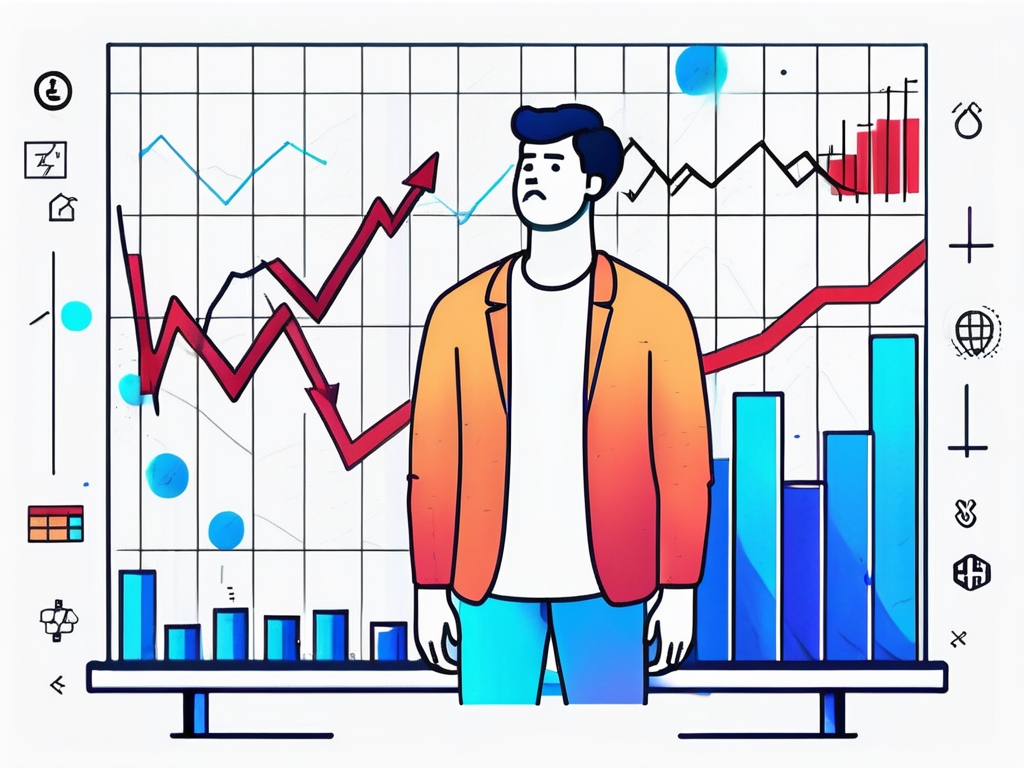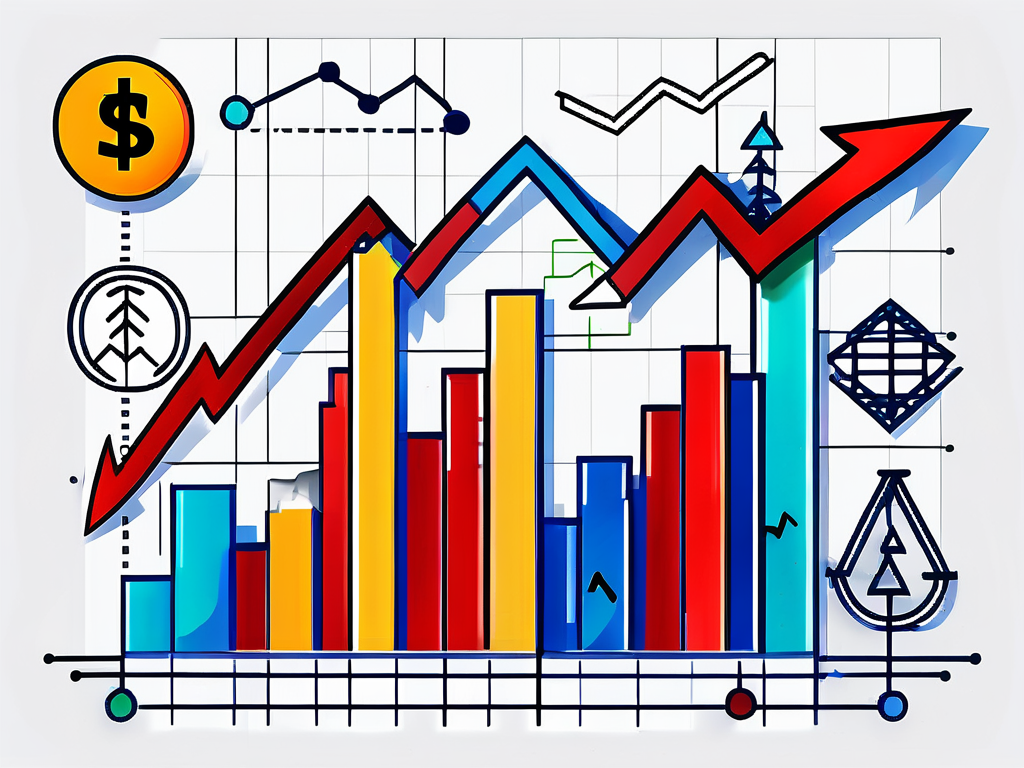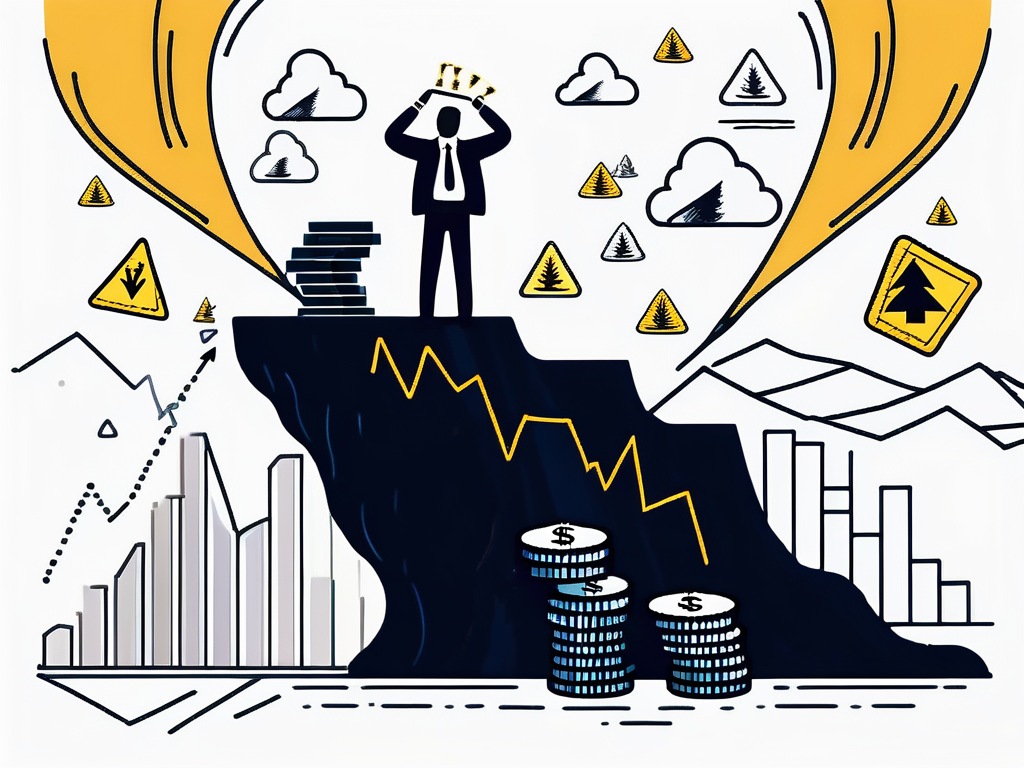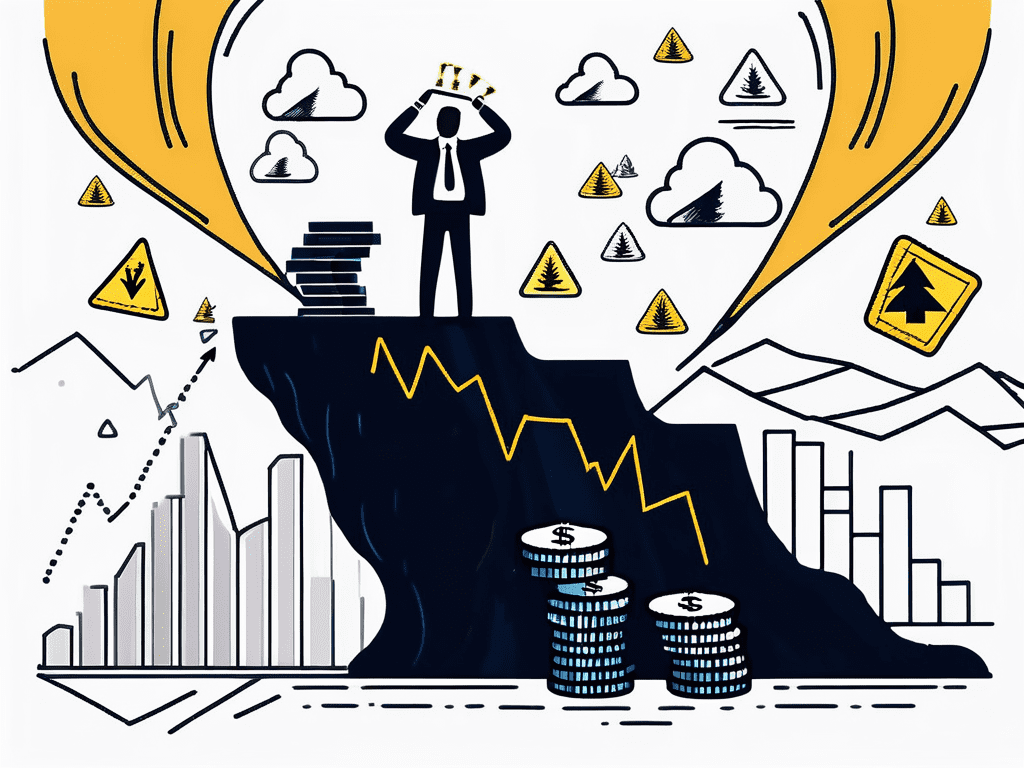The Best Trading Lessons That I Ever Learned
This article will focus on avoiding the biggest trading mistakes that most retail traders experience. Trading in the financial markets can be an exciting and lucrative endeavor. However, it is not without its challenges and risks. Over the years, I have learned some valuable lessons that have shaped my approach to trading. In this article, I will share my experiences and the wisdom I gained along the way. Please note that the information presented here is for educational purposes only and should not be construed as financial advice.Learning from Mistakes: My Biggest Trading Blunders
One of the most important lessons I learned early on was the significance of learning from my mistakes. We all make trading blunders at some point, but the key lies in analyzing these mistakes and understanding what went wrong. Whether it was a hasty decision based on emotion or a misinterpretation of market signals, it is essential to identify the root cause to avoid repeating the same mistakes in the future. For example, I once fell victim to overtrading due to fear of missing out on potential profits. This led to impulsive decision-making and ultimately resulted in significant losses. However, by acknowledging this mistake and taking steps to overcome my emotional biases, I was able to develop a more disciplined and strategic approach to trading.
Another common trading blunder that I encountered was the lack of proper risk management. In the pursuit of high returns, I often neglected to set stop-loss orders or adhere to position sizing rules. This reckless behavior exposed me to unnecessary risks and amplified the impact of market volatility on my portfolio. Through this experience, I realized the importance of implementing a robust risk management strategy to protect my capital and preserve long-term sustainability in trading.
Furthermore, reflecting on past mistakes allowed me to refine my trading psychology and cultivate a mindset focused on continuous improvement. By embracing a growth-oriented perspective, I shifted my perspective from viewing failures as setbacks to seeing them as valuable learning opportunities. This shift in mindset not only enhanced my decision-making process but also fostered resilience in the face of adversity, enabling me to navigate the complexities of the financial markets with greater confidence and composure.
For example, I once fell victim to overtrading due to fear of missing out on potential profits. This led to impulsive decision-making and ultimately resulted in significant losses. However, by acknowledging this mistake and taking steps to overcome my emotional biases, I was able to develop a more disciplined and strategic approach to trading.
Another common trading blunder that I encountered was the lack of proper risk management. In the pursuit of high returns, I often neglected to set stop-loss orders or adhere to position sizing rules. This reckless behavior exposed me to unnecessary risks and amplified the impact of market volatility on my portfolio. Through this experience, I realized the importance of implementing a robust risk management strategy to protect my capital and preserve long-term sustainability in trading.
Furthermore, reflecting on past mistakes allowed me to refine my trading psychology and cultivate a mindset focused on continuous improvement. By embracing a growth-oriented perspective, I shifted my perspective from viewing failures as setbacks to seeing them as valuable learning opportunities. This shift in mindset not only enhanced my decision-making process but also fostered resilience in the face of adversity, enabling me to navigate the complexities of the financial markets with greater confidence and composure.
The Journey of a Trader: From Novice to Expert
Becoming a successful trader is a journey that requires continuous learning and improvement. Starting as a novice trader, I quickly realized that expertise cannot be achieved overnight. It takes time and effort to gain a deep understanding of the different markets, indicators, and trading strategies. One valuable lesson I learned is the importance of setting realistic expectations. Initially, I had grandiose ambitions of turning a small investment into a fortune overnight. However, the reality of trading taught me that success comes with patience and persistence. Slow and steady wins the race.
As I delved deeper into the world of trading, I discovered the significance of risk management. Understanding how to protect my capital and manage potential losses became a crucial part of my trading strategy. Implementing stop-loss orders and position sizing helped me navigate the unpredictable nature of the financial markets with more confidence.
Furthermore, I realized the importance of staying informed about global economic events and market trends. Keeping up with news updates, economic reports, and geopolitical developments allowed me to make more informed trading decisions. By analyzing how external factors influence market movements, I was able to anticipate potential opportunities and risks, enhancing my overall trading performance.
One valuable lesson I learned is the importance of setting realistic expectations. Initially, I had grandiose ambitions of turning a small investment into a fortune overnight. However, the reality of trading taught me that success comes with patience and persistence. Slow and steady wins the race.
As I delved deeper into the world of trading, I discovered the significance of risk management. Understanding how to protect my capital and manage potential losses became a crucial part of my trading strategy. Implementing stop-loss orders and position sizing helped me navigate the unpredictable nature of the financial markets with more confidence.
Furthermore, I realized the importance of staying informed about global economic events and market trends. Keeping up with news updates, economic reports, and geopolitical developments allowed me to make more informed trading decisions. By analyzing how external factors influence market movements, I was able to anticipate potential opportunities and risks, enhancing my overall trading performance.
Networking with Other Traders: Sharing Insights and Strategies
No trader is an island, and networking with other traders can be immensely beneficial. Through networking, I have had the opportunity to connect with experienced traders who generously shared their knowledge and insights. This collaboration has exposed me to a wide range of perspectives and strategies that have helped me refine my own approach to trading. Attending trading conferences, joining online forums, and participating in trading communities have been instrumental in my trading journey. Interacting with fellow traders allows for the exchange of ideas and the discovery of new techniques. It is a constant reminder that there is always something new to learn in the ever-evolving world of trading. One of the key benefits of networking with other traders is the opportunity to build lasting relationships within the trading community. These relationships can provide support during challenging times and offer a sense of camaraderie in an often solitary profession. By fostering connections with like-minded individuals, traders can create a network of trusted peers who can offer advice, share experiences, and provide valuable feedback. Furthermore, networking can open doors to new opportunities and collaborations. By expanding your circle of contacts, you increase the likelihood of coming across potential partnerships, joint ventures, or even mentorship opportunities. Building a strong network of connections in the trading world can lead to exciting ventures and help propel your trading career to new heights.Developing a Trading Plan: Structure and Discipline
A crucial lesson I learned early on was the importance of having a well-defined trading plan. Without a plan, trading can quickly become chaotic and erratic. A trading plan serves as a roadmap, outlining your financial goals, risk tolerance, and specific strategies for different market conditions. Having a structured plan not only provides a sense of direction but also helps in maintaining discipline. With a plan in place, I am less likely to make impulsive decisions based on short-term market fluctuations or emotions. It allows me to approach trading with a level-headed mindset, focusing on long-term profitability rather than immediate gratification. One key aspect of developing a trading plan is conducting thorough research and analysis. This involves studying various financial instruments, market trends, and economic indicators to make informed decisions. By staying informed and up-to-date on market developments, I can adapt my trading strategies accordingly and capitalize on emerging opportunities. Furthermore, risk management is an integral part of any trading plan. Establishing risk management protocols, such as setting stop-loss orders and diversifying investments, helps mitigate potential losses and protect capital. By incorporating risk management strategies into my trading plan, I can safeguard my portfolio against unforeseen market volatility and downturns.How Long Should You Stay in The Simulator
When starting out as a trader, many embark on a simulator journey to gain experience and test strategies without risking real money. While simulators can be invaluable tools, it is important to find the right balance between simulator trading and live trading. Initially, spending time in a simulator can help build confidence, familiarize yourself with different trading platforms, and develop your trading skills. However, it’s crucial to recognize that simulators lack the emotional and psychological aspects of real trading. Eventually, transitioning to live trading with a small, manageable account size can provide valuable real-world experience and prepare you for the challenges of actual market conditions. Moreover, staying in the simulator for an extended period can also help you refine your risk management strategies. By testing various risk levels and scenarios in a simulated environment, you can gain a better understanding of how different approaches may impact your overall trading performance. This can be particularly beneficial in developing the discipline needed to adhere to risk management rules when trading with real money. Additionally, using the simulator to explore different trading styles and techniques can broaden your knowledge and help you discover what works best for your individual trading preferences. Whether you are interested in day trading, swing trading, or long-term investing, the simulator provides a risk-free space to experiment and fine-tune your strategies before implementing them in live markets.Don’t Get Overconfident After A Big Win
Experiencing a big win can be exhilarating, but it can also lead to overconfidence. It is important to remain grounded and not let success cloud judgment. After a significant win, it is easy to slip into a mindset of invincibility, leading to impulsive and risky trading decisions. A lesson I have learned is the importance of maintaining a balanced mindset. Celebrate successes, but never become complacent. Continuously fine-tune your strategies, learn from both wins and losses, and stay disciplined in your approach. Remember, the market is unpredictable, and maintaining humility is crucial for long-term success.
In addition to staying humble and disciplined, it is essential to diversify your portfolio to mitigate risks. By spreading your investments across different asset classes, industries, and regions, you can reduce the impact of market volatility on your overall wealth. Diversification is a key strategy used by successful investors to protect their capital and optimize returns over time.
Furthermore, staying informed about global economic trends and geopolitical events is vital for making well-informed trading decisions. By understanding how macroeconomic factors influence the financial markets, you can anticipate potential risks and opportunities, allowing you to adjust your investment strategy accordingly. Remember, knowledge is power in the world of trading.
In conclusion, the best trading lessons I ever learned are a result of both successes and failures. Each experience has shaped my approach to trading, leading to continuous improvement and growth. While trading can be a challenging endeavor, it also provides endless opportunities for learning and personal development. Remember, always trade responsibly and seek professional advice if needed. If you’re interested in starting your trading journey, consider exploring TrendCloud Trading, a platform that offers comprehensive educational resources and tools to help traders excel in the financial markets.
A lesson I have learned is the importance of maintaining a balanced mindset. Celebrate successes, but never become complacent. Continuously fine-tune your strategies, learn from both wins and losses, and stay disciplined in your approach. Remember, the market is unpredictable, and maintaining humility is crucial for long-term success.
In addition to staying humble and disciplined, it is essential to diversify your portfolio to mitigate risks. By spreading your investments across different asset classes, industries, and regions, you can reduce the impact of market volatility on your overall wealth. Diversification is a key strategy used by successful investors to protect their capital and optimize returns over time.
Furthermore, staying informed about global economic trends and geopolitical events is vital for making well-informed trading decisions. By understanding how macroeconomic factors influence the financial markets, you can anticipate potential risks and opportunities, allowing you to adjust your investment strategy accordingly. Remember, knowledge is power in the world of trading.
In conclusion, the best trading lessons I ever learned are a result of both successes and failures. Each experience has shaped my approach to trading, leading to continuous improvement and growth. While trading can be a challenging endeavor, it also provides endless opportunities for learning and personal development. Remember, always trade responsibly and seek professional advice if needed. If you’re interested in starting your trading journey, consider exploring TrendCloud Trading, a platform that offers comprehensive educational resources and tools to help traders excel in the financial markets.
Take Your Trading to New Heights with TrendCloud
Embark on a transformative journey with Chris Juliano’s TrendCloud Trading System and unlock the potential to elevate your trading strategy. Whether you’re reflecting on past lessons or forging ahead to new achievements, the TrendCloud Trading System provides you with the advanced tools and insights necessary to thrive in the dynamic world of trading. Embrace the power of Momentum and trend analysis across multiple timeframes, and join a community of traders who are already experiencing the benefits of this innovative trading framework. Ready to enhance your trading experience? Learn More about how the TrendCloud Trading System can be your partner in the pursuit of trading excellence.
